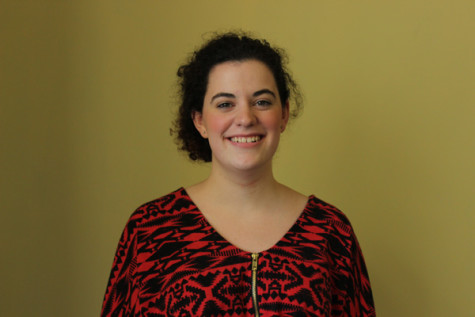Pitt-Johnstown administrators have added a program to complement an existing academic probation program in the hopes that struggling students will continue to improve.
This year, students ranging from a 1.0 to 1.7 grade-point average are to be placed in a more-intensive program (G.O.A.L.) to improve their grade averages.
The grade-point average range was expanded upward this year from a 1.5 cap for the more intensive program. Students unable to achieve above a 1.0 are suspended for one semester with the option to re-enroll.
According to assistant to academic affairs vice president Paul Newman, the more-intensive program used to be available to students under a 1.0, but the program was ineffective for this group.
This program has been in effect before, but changes have been implemented throughout the past few years that have expanded its reaches and improved outcomes.
Students in this program are required to meet weekly with an academic success counselor. They also must attend at least 90 percent of their classes. Attendane is tracked through an instructor sign-in sheet.
The program also requires students to take a Foundations of Learning course, which discusses the theory of learning, introducing students to new study techniques and a basic understanding of how people learn.
Newman said students are expected to go prepared to their counselor meetings, discussing their progress and classroom status. These students are also instructed to take advantage of tutoring programs.
“It’s a high-impact, purposeful development program.”
Newman said the boost in range to a 1.7 grade point average was due to the success of the program in lowering the number of students on probation.
A total of 275 students were placed on academic probation during the 2010 school year, which also did not suspend students below a 1.0. Last year only 118 students were placed on probation.
Some may think this decrease is because there are more students being suspended, but statistics show the opposite. In 2010, 61 students were suspended while, in 2013, only 27 students were suspended, eight of whom were first-year students.
A less-intensive program (P.A.S.S.) provides students with a 1.7 to 2.0 grade-point average opportunities to improve their averages by meeting twice a semester with their division chairperson.
Newman said the decreasing number of probationary students allows the use of division chairs as counselors without overwhelming the chairpersons.
“The divisions are responsible for their majors,” Newman said. “The division chairs have all been receptive to it.”
They are also expected to complete five study hall hours per week and tutoring for three different classes on a regular basis.
Newman said the less-intensive program was launched originally last semester, affecting a different group of students as a trial run.
The program allowed provisionally admitted students to increase the number of credits they are allowed to take in return for following the program’s guidelines.
Only one of the 32 students was suspended for recording below a 1.0 average. 10 students were placed on academic probation, but 10 students also achieved dean’s list honors.
Statistically, these numbers are superior when compared to the entire student body.
Students in the programs show grade-average improvements well beyond improvements among all students, Newman said.
“The ones who (did well) were compliant with the program.”
“I have reason to be optimistic,” he said. “I’m expecting similar success with (these programs) in the spring.”
Newman said these programs teach students to take accountability for their academics. He said the university owes it to these students, who pay a lot of money for the opportunity, to help them graduate.
“Students deserve all the time and effort that we can give.”
Newman said many students embrace their probationary requirements and have shown that they have the ability to succeed.
“Every single student has the ability to succeed here,” he said. “I’m very proud of these students who work hard in these programs.”

